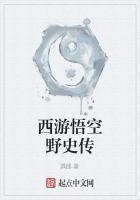Why Mrs. General Talboys first made up her mind to pass the winter of 1859 at Rome I never clearly understood. To myself she explained her purposes soon after her arrival at the Eternal City, by declaring, in her own enthusiastic manner, that she was inspired by a burning desire to drink fresh at the still living fountains of classical poetry and sentiment. But I always thought that there was something more than this in it. Classical poetry and sentiment were doubtless very dear to her, but so also, I imagine, were the substantial comforts of Hardover Lodge, the general's house in Berkshire; and I do not think that she would have emigrated for the winter had there not been some slight domestic misunderstanding. Let this, however, be fully made clear--that such misunderstanding, if it existed, must have been simply an affair of temper. No impropriety of conduct has, I am very sure, ever been imputed to the lady. The general, as all the world knows, is hot;and Mrs. Talboys, when the sweet rivers of her enthusiasm are unfed by congenial waters, can, I believe, make herself disagreeable. But be this as it may, in November, 1859, Mrs. Talboys came among us English at Rome, and soon succeeded in obtaining for herself a comfortable footing in our society. We all thought her more remarkable for her mental attributes than for physical perfection, but nevertheless she was in her own way a sightly woman. She had no special brilliance, either of eye or complexion, such as would produce sudden flames in susceptible hearts, nor did she seem to demand instant homage by the form and step of a goddess; but we found her to be a good-looking woman of some thirty or thirty-three years of age, with soft, peach-like cheeks,--rather too like those of a cherub,--with sparkling eyes which were hardly large enough, with good teeth, a white forehead, a dimpled chin, and a full bust. Such outwardly was Mrs. General Talboys. The description of the inward woman is the purport to which these few pages will be devoted. There are two qualities to which the best of mankind are much subject, which are nearly related to each other, and as to which the world has not yet decided whether they are to be classed among the good or evil attributes of our nature. Men and women are under the influence of them both, but men oftenest undergo the former, and women the latter. They are ambition and enthusiasm. Now Mrs. Talboys was an enthusiastic woman. As to ambition, generally as the world agrees with Mark Antony in stigmatising it as a grievous fault, I am myself clear that it is a virtue; but with ambition at present we have no concern. Enthusiasm also, as I think, leans to virtue's side, or, at least, if it be a fault, of all faults it is the prettiest. But then, to partake at all of virtue or even to be in any degree pretty, the enthusiasm must be true. Bad coin is known from good by the ring of it, and so is bad enthusiasm. Let the coiner be ever so clever at his art, in the coining of enthusiasm the sound of true gold can never be imparted to the false metal; and I doubt whether the cleverest she in the world can make false enthusiasm palatable to the taste of man; to the taste of any woman the enthusiasm of another woman is never very palatable. We understood at Rome that Mrs. Talboys had a considerable family,--four or five children, we were told,--but she brought with her only one daughter, a little girl about twelve years of age. She had torn herself asunder, as she told me, from the younger nurslings of her heart, and had left them to the care of a devoted female attendant, whose love was all but maternal. And then she said a word or two about the general in terms which made me almost think that this quasi-maternal love extended itself beyond the children. The idea, however, was a mistaken one, arising from the strength of her language, to which I was then unaccustomed. I have since become aware that nothing can be more decorous than old Mrs. Upton, the excellent head nurse at Hardover Lodge; and no gentleman more discreet in his conduct than General Talboys. And I may as well here declare also that there could be no more virtuous woman than the general's wife. Her marriage vow was to her paramount to all other vows and bonds whatever. The general's honour was quite safe when he sent her off to Rome by herself, and he no doubt knew that it was so. /Illi robur et oes triplex/, of which I believe no weapons of any assailant could get the better. But nevertheless we used to fancy that she had no repugnance to impropriety in other women--to what the world generally calls impropriety. Invincibly attached herself to the marriage tie, she would constantly speak of it as by no means necessarily binding on others; and virtuous herself as any griffin of propriety, she constantly patronised, at any rate, the theory of infidelity in her neighbours. She was very eager in denouncing the prejudices of the English world, declaring that she found existence among them to be no longer possible for herself. She was hot against the stern unforgiveness of British matrons, and equally eager in reprobating the stiff conventionalities of a religion in which she said that none of its votaries had faith, though they all allowed themselves to be enslaved. We had at that time a small set at Rome consisting chiefly of English and Americans, who habitually met at one another's rooms, and spent many of our evening hours in discussing Italian politics. We were, most of us, painters, poets, novelists, or sculptors--perhaps I should say would-be painters, poets, novelists, and sculptors, aspirants hoping to become some day recognised; and among us Mrs. Talboys took her place naturally enough on account of a very pretty taste she had for painting. I do not know that she ever originated anything that was grand, but she made some nice copies and was fond, at any rate, of art conversation. She wrote essays too, which she showed in confidence to various gentlemen, and had some idea of taking lessons in modelling. In all our circle Conrad Mackinnon, an American, was perhaps the person most qualified to be styled its leader. He was one who absolutely did gain his living, and an ample living too, by his pen, and was regarded on all sides as a literary lion, justified by success in roaring at any tone he might please. His usual roar was not exactly that of a sucking dove or a nightingale, but it was a good-humoured roar, not very offensive to any man and apparently acceptable enough to some ladies. He was a big, burly man, near to fifty, as I suppose, somewhat awkward in his gait, and somewhat loud in his laugh. But though nigh to fifty, and thus ungainly, he liked to be smiled on by pretty women, and liked, as some said, to be flattered by them also. If so he should have been happy, for the ladies at Rome at that time made much of Conrad Mackinnon. Of Mrs. Mackinnon no one did make very much, and yet she was one of the sweetest, dearest, quietest little creatures that ever made glad a man's fireside. She was exquisitely pretty, always in good humour, never stupid, self-denying to a fault, and yet she was generally in the background. She would seldom come forward of her own will, but was contented to sit behind her teapot and hear Mackinnon do his roaring. He was certainly much given to what the world at Rome called flirting, but this did not in the least annoy her. She was twenty years his junior, and yet she never flirted with any one. Women would tell her--good-natured friends--how Mackinnon went on, but she received such tidings as an excellent joke, observing that he had always done the same, and no doubt always would until he was ninety. I do believe that she was a happy woman, and yet I used to think that she should have been happier. There is, however, no knowing the inside of another man's house or reading the riddles of another man's joy and sorrow. We had also there another lion,--a lion cub,--entitled to roar a little, and of him also I must say something. Charles O'Brien was a young man about twenty-five years of age, who had sent out from his studio in the preceding year a certain bust supposed by his admirers to be unsurpassed by any effort of ancient or modern genius. I am no judge of sculpture, and will not therefore pronounce an opinion, but many who considered themselves to be judges declared that it was a "goodish head and shoulders" and nothing more. I merely mention the fact, as it was on the strength of that head and shoulders that O'Brien separated himself from a throng of others such as himself in Rome, walked solitary during the days, and threw himself at the feet of various ladies when the days were over. He had ridden on the shoulders of his bust into a prominent place in our circle, and there encountered much feminine admiration--from Mrs. General Talboys and others. Some eighteen or twenty of us used to meet every Sunday evening in Mrs. Mackinnon's drawing-room. Many of us, indeed, were in the habit of seeing one another daily and of visiting together the haunts in Rome which are best loved by art-loving strangers; but here in this drawing-room we were sure to come together, and here before the end of November Mrs. Talboys might always be found, not in any accustomed seat, but moving about the room as the different male mental attractions of our society might chance to move themselves. She was at first greatly taken by Mackinnon, who also was, I think, a little stirred by her admiration, though he stoutly denied the charge. She became, however, very dear to us all before she left us, and certainly we owed to her our love, for she added infinitely to the joys of our winter.
同类推荐
热门推荐













